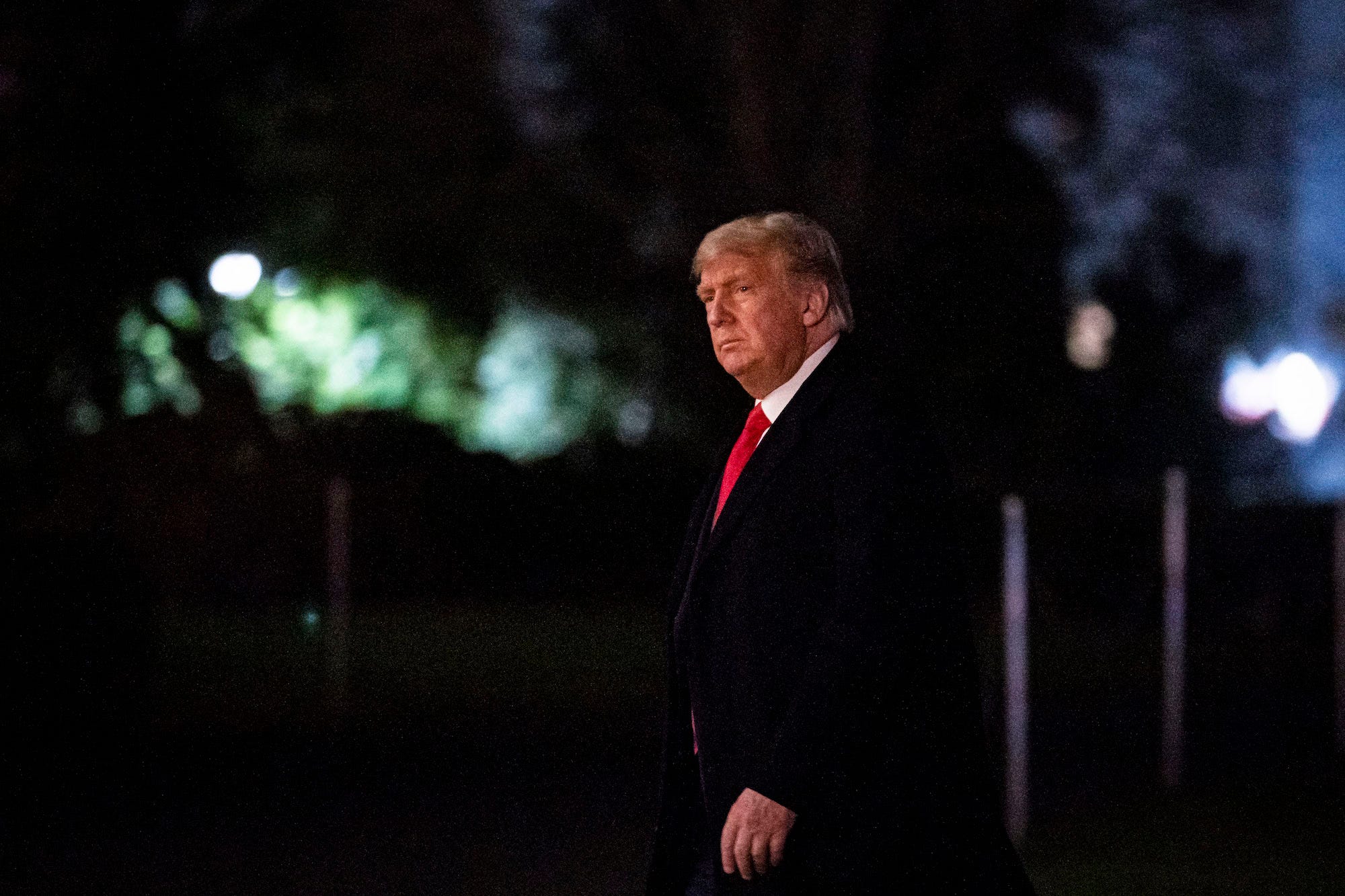
Al Drago/Getty Images
- President Donald Trump planned to sign the $2.3 trillion COVID-19 relief and government funding bill on Christmas Eve, but he “changed his mind,” according to CNN.
- According to the report, a desk and chair were prepared for Trump to sign the bill, but as the 7 p.m. signing time approached, aides were told that he would not be signing the bill that night.
- Because the bill was signed on Sunday and not before the Saturday night deadline, the newly-approved $300 federal unemployment supplemental benefit may now only last for 10 weeks instead of 11 weeks.
- Visit Business Insider’s homepage for more stories.
On Christmas Eve, President Donald Trump planned to sign the $2.3 trillion COVID-19 relief and government funding bill into law, which would assuage a nation battered by the pandemic that more economic help was on the way.
However, when the bill arrived at his Mar-a-Lago resort in Florida for his signature, he “changed his mind” and rebuffed a plan to sign the bill during an evening ceremony in one of the resort’s ballrooms, according to CNN.
According to the report, a desk and chair were prepared on Christmas Eve for Trump to sign the bill, along with his customary pens, but as the 7 p.m. signing time approached, aides were told that he would not be signing the bill that night.
While Trump on Sunday eventually signed the bill, which he previously slammed as a disgrace largely because it included $600 stimulus checks instead of his proclaimed preference for $2,000 checks, he missed the Saturday evening deadline for continuing the federal unemployment supplemental benefits – the delay will cost already-struggling Americans a week of $300 unemployment benefits.
The critical $300 federal lifeline may now only last for 10 weeks instead of the 11 weeks that was sought when the compromise package was forged.
On December 22, Trump said that he wouldn't sign the coronavirus relief legislation into law unless the stimulus payments were increased, which he did not disclose during the difficult negotiation process between Congressional leaders that resulted in the bipartisan rescue package this month.
That day, Trump also slammed part of the $1.4 trillion omnibus appropriations bill, which appropriated funding for federal agencies for the remainder of the fiscal year and was merged with the $900 billion stimulus package.
"It's called the COVID relief bill, but it has almost nothing to do with COVID," the President said at the time, seemingly conflating the spending bill and the relief package.
On December 31, the Pandemic Emergency Unemployment Compensation, or PEUC, was set to expire but has now been extended with the new relief package. The CARES Act, which passed in March, extended traditional unemployment benefits from the standard 26 weeks to 39 weeks. The new package extends PEUC by providing 24 weeks of additional unemployment benefits, raising the cap from 39 weeks to 50 weeks.
